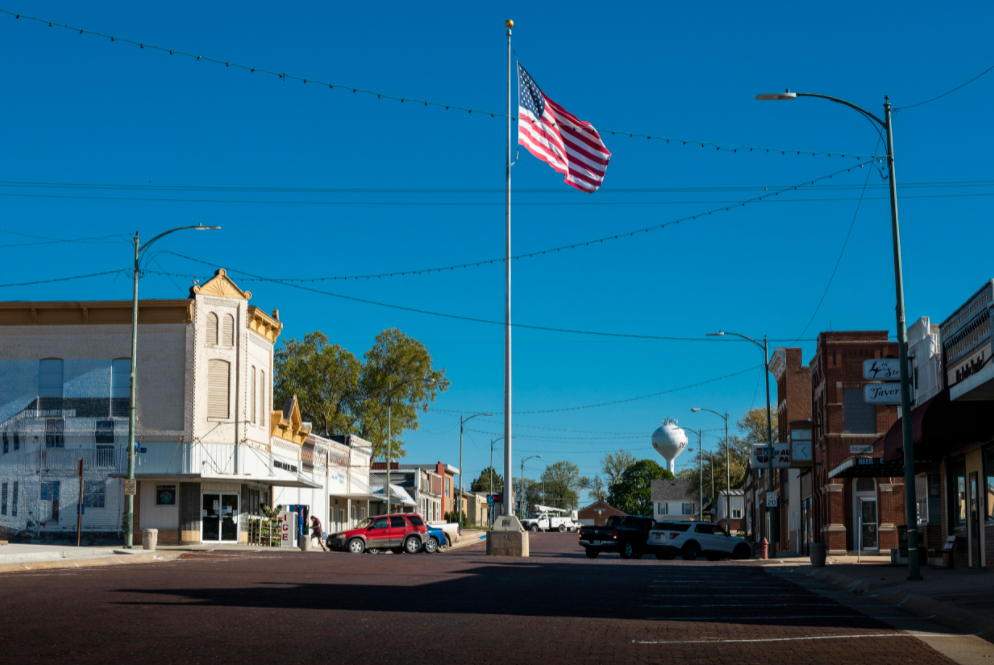Becky Vogt, December 17, 2021
Polls: Nebraskans — especially those in metro areas — optimistic about future
Despite challenges, rural Nebraskans continue to be optimistic about their current situation, according to the 2021 Nebraska Rural Poll. However, their optimism about the future is slightly down compared to last year, and their metropolitan counterparts are more optimistic about both their current situation and the future.
Since its beginning 26 years ago, the Nebraska Rural Poll has asked respondents about their outlook on the future. During the past decade, rural Nebraskans’ optimism has generally improved. This year, rural respondents gave similar assessments of their current situation as they did last year, according to Becky Vogt, the poll’s manager. The proportion believing they are better off than they were five years ago was 52% this year, similar to the 53% reported in 2020.
However, rural Nebraskans’ optimism about their future is slightly lower than last year. Forty-seven percent of rural Nebraskans surveyed believe they will be better off 10 years from now. This is a slight decline from the 50% of respondents who reported they believed they would be better off in 10 years in 2020. The past two years have shown a steady decline from 52% in 2019 (the highest proportion across all years of the study).
The annual poll surveys rural Nebraskans on their views and opinions on various local, state and national issues, as well as on their quality of life and access to services. This year, the Rural Poll was conducted in conjunction with a Nebraska Metro Poll.
According to the polls, metropolitan residents are more likely than rural residents to say they are better off compared to five years ago and that they will be better off 10 years from now. Just over six in 10 metro residents surveyed believe they are better off than they were five years ago, compared to 52% of rural respondents. Fifty-five percent of metro respondents believe they will be better off a decade from now, while 47% of rural residents agree with this assessment.
Differences between metropolitan and rural residents are also seen when asked if people are powerless to control their own lives. Rural residents are more likely than their metro counterparts to agree or strongly agree with this statement, 32% compared to 23%. In fact, more rural respondents agreed with this statement than did last year (26%).
Steve Schulz, associate professor of supply chain management at the University of Nebraska Omaha, said that powerlessness is often attributed to the inability to manage or control personal or social outcomes.
“Rural residents were more likely than metropolitan residents to report that the pandemic affected their financial health,” he said. “Lack of control over financial health may have led to increased powerlessness among rural residents.”
However, when given a list of 23 variables that can affect well-being, such as family and financial security in retirement, there were no differences in satisfaction levels between metropolitan and rural residents for half of the items listed. However, metro respondents were more likely than their rural counterparts to be satisfied with many financial variables, including their ability to afford their residence, ability to build assets and wealth, general quality of life, general standard of living, housing, job opportunities, education, health and current income level. Rural respondents were more likely to be satisfied with clean air and their religion/spirituality.
“There are differences but there are more similarities than one might expect,” said Cheryl Burkhart-Kriesel, an extension professor at the Panhandle Research and Extension Center in Scottsbluff. “As examples, metro and rural residents have similar satisfaction levels with their community, their personal safety, clean water, job security, financial security during retirement and their family. And even when there are differences, they are not huge — less than 10 percentage points.”
The Nebraska Rural Poll is sent to 7,000 households annually in rural communities across the state. In 2021, an additional 7,000 surveys were distributed to Nebraskans in metropolitan areas to capture experiences and perceptions across the entire state.
This year, 1,568 rural Nebraskans completed the Nebraska Rural Poll (a 26% response rate) and 1,305 urban residents completed the Nebraska Metro Poll (a 21% response rate). The polls asked participants about their experiences with the pandemic, their health and well-being, views about their community, and trust in institutions and media.
The Rural Poll is the largest annual poll gauging rural Nebraskans’ perceptions about policy and quality of life. The margin of error for the Rural Poll is plus-or-minus 2%; the margin of error for the Metro Poll is plus-or-minus 3%. Complete results are available here. The university’s Department of Agricultural Economics conducts the poll with funding from Rural Prosperity Nebraska and the Institute of Agriculture and Natural Resources. The Nebraska Business Development Center at the University of Nebraska Omaha provided funding to expand the survey to the Omaha and Lincoln metropolitan areas.






